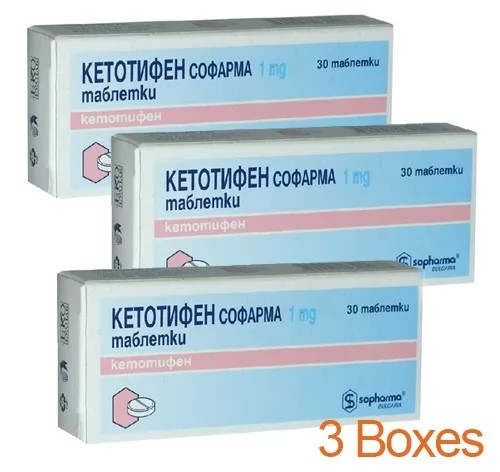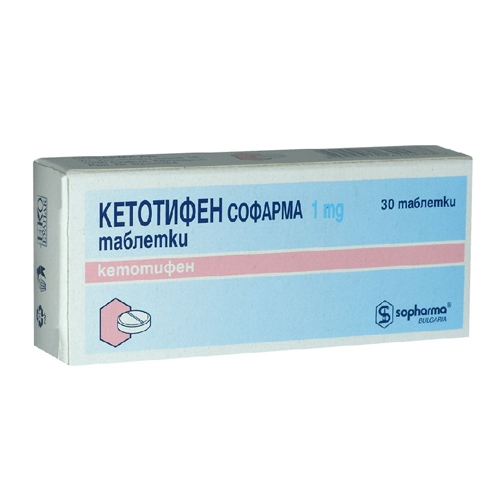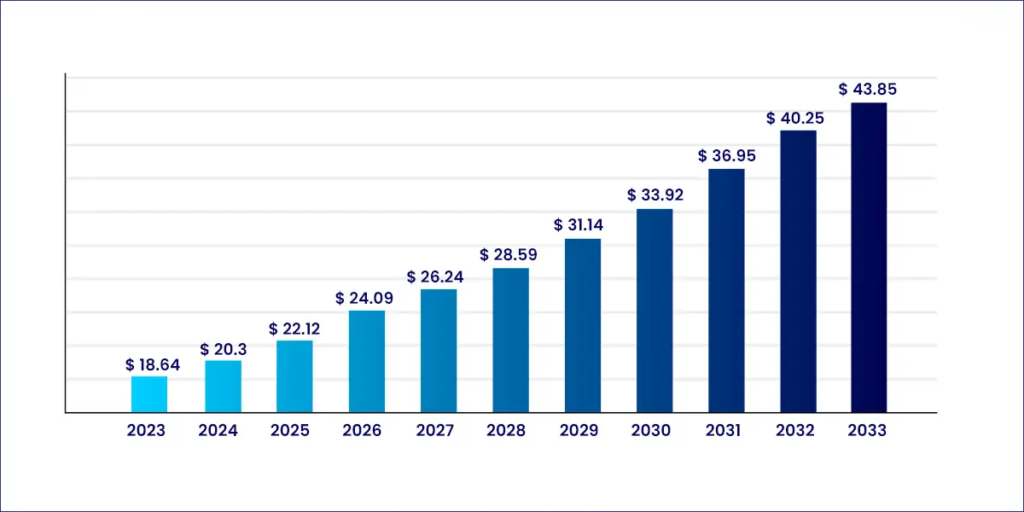Allergies can be a persistent source of discomfort, leading to symptoms like sneezing, itching, and even breathing difficulties. For those who experience these symptoms regularly, managing allergies often requires preventive medication.
Ketotifen tablets are one such option that provides relief by addressing the source of allergic reactions at the cellular level. Unlike typical antihistamines that primarily control symptoms after they appear, Ketotifen tablets work proactively to prevent allergic reactions from occurring.
This article dives into how Ketotifen functions within the body to reduce allergy symptoms, exploring its role in stabilizing immune responses, blocking histamine release, and managing inflammation.
We’ll also look at how Ketotifen compares to other treatments in terms of its effectiveness for long-term allergy management, including how it may benefit individuals with chronic allergies or asthma.
Understanding these mechanisms can help individuals decide if Ketotifen is the right choice for managing their allergy symptoms more effectively.
What Are Ketotifen Tablets and Their Purpose in Allergy Relief?
Ketotifen tablets are antihistamines designed to offer preventive relief from allergy symptoms. While many antihistamines focus on blocking the symptoms after they begin, Ketotifen works differently by proactively stabilizing the immune system’s response to allergens.
Specifically, Ketotifen targets histamines—compounds the body releases in response to allergens, which trigger symptoms like sneezing, itching, and swelling. Ketotifen’s ability to prevent the release of these histamines gives it a unique place in allergy management.
This makes it especially valuable for people who experience frequent allergic reactions or have ongoing respiratory conditions such as asthma.
Ketotifen tablets can help reduce the likelihood of a response and make any resulting symptoms less intense, making it a versatile choice for chronic and acute allergy sufferers.
By integrating Ketotifen into their routine, individuals can proactively manage their allergies, ensuring a better quality of life with fewer interruptions from allergy symptoms.
The Role of Histamines in Allergic Reactions
Histamines are crucial in the body’s allergic response, acting as its body’s system when encountering potential threats.
When an allergen is detected, the immune system releases histamines to bind to specific tissue receptors. This binding triggers inflammation, leading to typical allergy symptoms such as redness, itching, mucus production, and even swelling.
Although histamines protect the body from harmful substances, they often respond to harmless allergens, like pollen or dust, resulting in unnecessary and uncomfortable reactions.
Ketotifen addresses this by inhibiting histamine activity in the body, reducing the symptoms associated with allergic reactions.
By blocking histamines before they can trigger a full-blown response, Ketotifen provides a pre-emptive line of defence for allergy sufferers.
This prevention is beneficial for those with chronic allergies or asthma, as it minimizes the body’s to overreact to harmless substances, ultimately helping to maintain a more balanced immune response.
Ketotifen’s Mechanism: How It Blocks Allergic Responses
Ketotifen prevents allergic responses at the cellular level, targeting mast cells, a type of immune cell responsible for releasing histamines during allergic reactions.
When the body encounters an allergen, mast cells release histamines, which bind to receptors in various tissues and lead to inflammatory symptoms.
Ketotifen stabilizes these mast cells, making it harder for them to release histamines. This stabilization process is unique to Ketotifen, as many antihistamines only block histamine receptors rather than prevent histamine release altogether.
This feature is highly beneficial for people with chronic allergies or conditions like asthma. By reducing histamine release at the source, Ketotifen can lower the frequency and severity of allergic responses, providing a consistent line of defence.
This cellular stabilization process allows allergy sufferers to experience fewer, less intense allergic reactions, offering long-term relief and a more controlled approach to managing symptoms effectively.
Effects of Ketotifen on Reducing Inflammation and Symptoms
One of the primary benefits of Ketotifen is its ability to minimize inflammation and alleviate symptoms associated with allergic reactions. Allergies often lead to uncomfortable symptoms like itching, swelling, and mucus build-up resulting from the body’s inflammatory response.
Ketotifen directly impacts these inflammatory processes by preventing histamine release and stabilizing mast cells, helping to control symptoms.
Additionally, Ketotifen has shown efficacy in reducing respiratory inflammation, making it a valuable option for people with asthma who experience allergy-induced breathing difficulties.
Unlike other antihistamines that only address symptoms on the surface level, Ketotifen’s approach helps address the underlying immune response, preventing a complete inflammatory reaction from developing.
This makes it a particularly effective solution for individuals seeking immediate symptom relief and long-term management of their allergies.
Ketotifen offers a stable, reliable option for reducing the frequency and severity of allergy-related inflammation, contributing to improved daily comfort for those with chronic conditions.
Duration and Effectiveness of Ketotifen in Allergy Management
Ketotifen is generally adequate for long-term allergy management, though it requires consistent use to yield the best results. Ketotifen’s effects are gradual, unlike other antihistamines, which often relieve Ketotifen’s symptom.
Most individuals experience noticeable benefits within a few days to weeks after starting treatment. This delayed onset is usually worth the wait for chronic allergy sufferers, as Ketotifen builds up in the system and provides a more sustained effect over time.
With regular use, Ketotifen helps reduce the frequency and intensity of allergic reactions, allowing users to manage their allergies more effectively.
It is particularly beneficial for individuals with ongoing conditions, such as asthma, as its preventive effects can lead to fewer asthma attacks and improved respiratory function.
By committing to regular use, patients can achieve long-term control over their allergic responses, making Ketotifen a valuable option for those seeking comprehensive allergy management rather than just quick symptom relief.
Global Ketotifen Tablets Market Size Forecast 2023-2033
The global Ketotifen tablets market is anticipated to experience consistent growth from 2023 to 2033, mainly due to the increasing prevalence of allergies such as asthma, allergic rhinitis, and conjunctivitis.
With more people affected by seasonal and chronic allergies, there is a rising demand for effective antihistamine solutions that offer long-term relief.
Ketotifen’s dual role as both an antihistamine and mast cell stabilizer has made it a preferred option for managing various allergic conditions, allowing it to meet the needs of patients seeking comprehensive allergy management.
Growing awareness around preventive allergy treatment and advancements in healthcare infrastructure, especially in developing regions, is also boosting demand for Ketotifen tablets.
Additionally, pharmaceutical companies focus on research and development to introduce improved formulations, potentially enhancing the drug’s efficacy and patient convenience.
Increased competition and broader availability are expected to drive market growth, positioning Ketotifen as a critical component in the global allergy treatment landscape over the forecast period.
Conclusion
In summary, Ketotifen tablets provide a unique and practical approach to managing allergic reactions by preventing the release of histamines and stabilizing mast cells.
By reducing inflammation and controlling symptoms before they start, Ketotifen helps allergy sufferers achieve a better quality of life through proactive treatment.
This preventive action makes it especially suitable for individuals with chronic allergies or respiratory conditions like asthma, offering a long-term solution rather than short-term symptom relief.
With consistent use, Ketotifen can help maintain balanced immune responses, reduce the frequency of allergic reactions, and alleviate common allergy symptoms. For those seeking a reliable approach to allergy management, Ketotifen offers a distinct mechanism and valuable benefits, making it an ideal choice for preventive allergy care.







